Theres a humanitarian crisis unfolding at the Belarus-Poland border Heres what you need to know
Read More


Mr Lukashenko has “unsurprisingly, denied allegations of official complicity in encouraging the migrant flow through Belarus to the EU - although he and his Ministers have over recent months threatened to withdraw cooperation with EU governments on managing migration, citing EU sanctions against Minskâ€, Massey University's Centre for Defence and Security Studies Adjunct Professor Ian Hill, New Zealand’s ambassador to Russia with accreditation in Belarus from 2016-2020, told SBS News.
“Lukashenko’s denials of official involvement are also undermined by news media footage apparently showing Belarus soldiers guiding migrants towards the borders with Lithuania and Poland â€" evidence corroborated by accounts of migrants themselves.â€
What’s happening on Belarus’ borders?In recent months, EU and NATO member nations Poland, Lithuania, and Latvia have seen the number of migrants attempting to cross the border into their nations from Belarus soar.
Poland’s major border crossing with Belarus at Kuznica is a focal point of the crisis, with thousands of migrants now at the border.
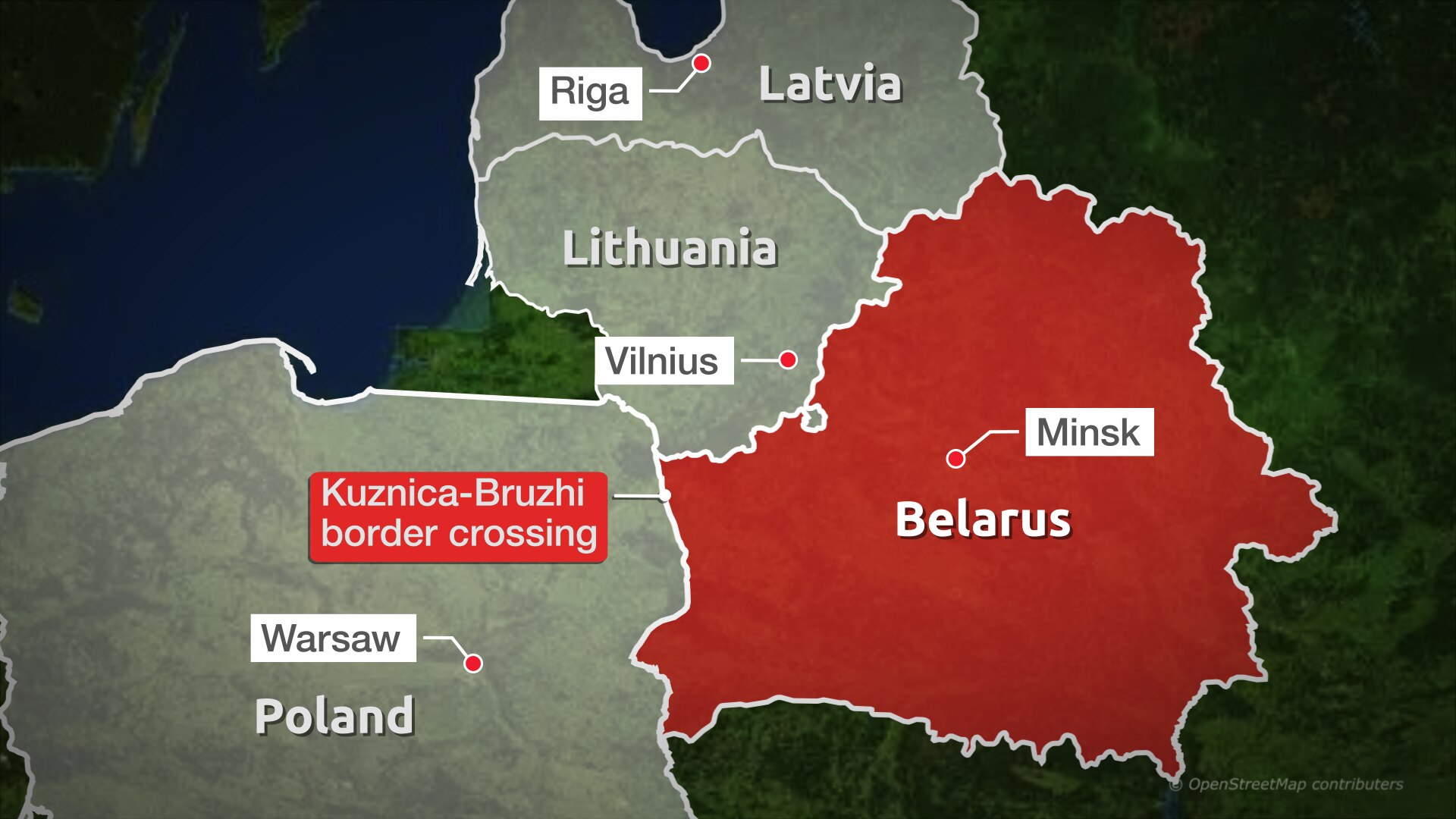

Source: SBS News
In Lithuania, a state of emergency has been declared in response to the surge of migrants at the Poland-Belarus border, with the nation stationing troops at its border in preparation for an influx, while Latvia is also militarising its borders.
The EU and United States “point out that Belarus is encouraging would-be migrants from Iraq, Syria and Afghanistan via social media, with the promise of easy access to the EU, facilitating ‘tourist visas’ to Belarus and easy access by air,†Professor Hill explained.
“The migrants are reportedly then assisted by Belarus authorities in travelling on to the country’s borders with its EU neighbours.â€
Where are the migrants coming from and what’s happening to them?The migrants have been attempting to cross from Belarus into the European Union, initially through Lithuania but increasingly now through Poland.
“The Lithuanian and now Polish governments, with strong backing from the EU in Brussels, are trying to prevent the entry of these migrants from Belarus at their borders," Professor Hill said.
“The Belarus government, in turn, is refusing to allow the would-be migrants to return into Belarus, resulting in growing numbers - reportedly now around 4,000 people - stranded in no-man’s land along the Belarus/Poland border.â€
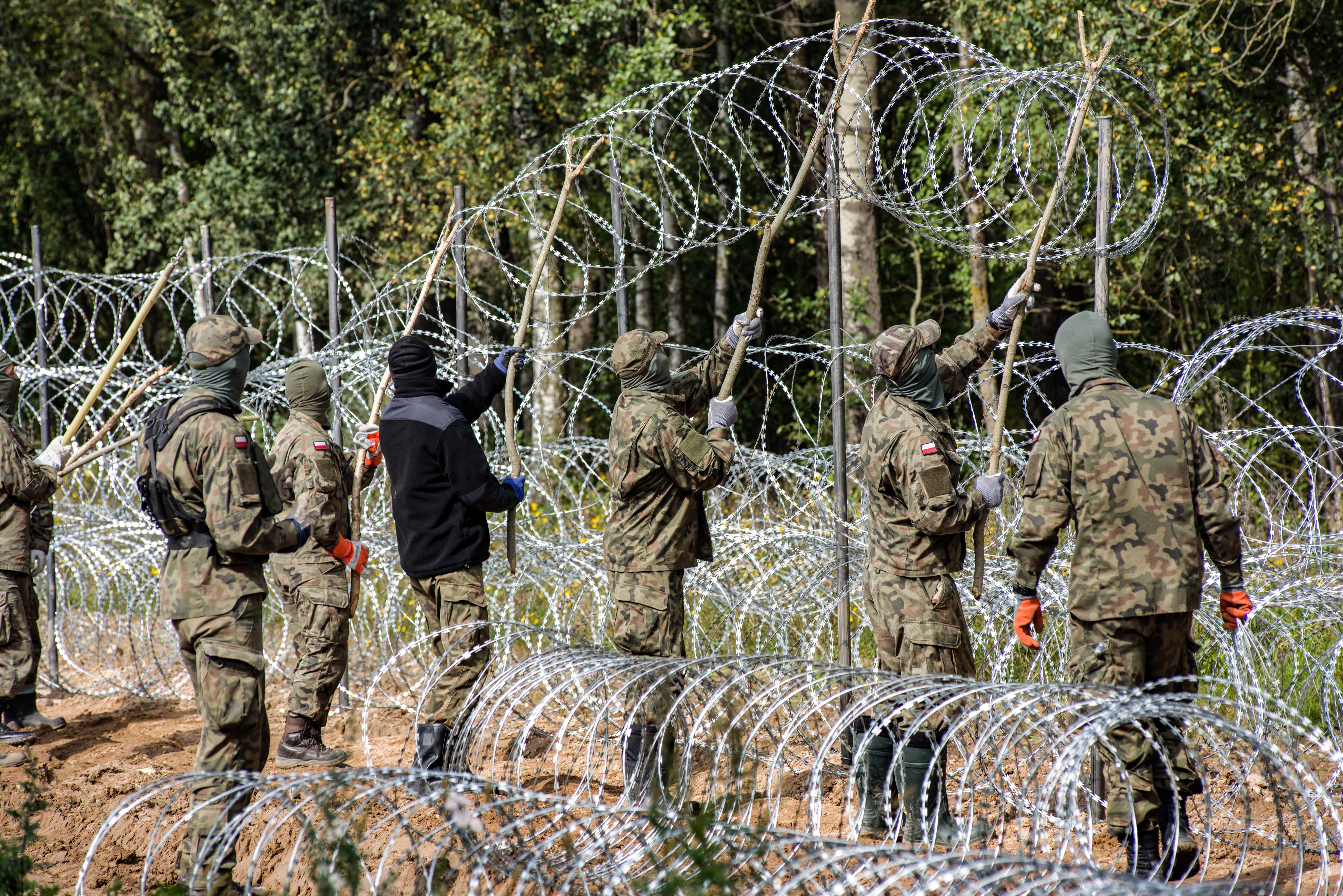

Poland has started building a barbed wire fence to curb the flow of migrants from countries such as Iraq and Afghanistan. Source: SOPA Images
The border stoush has become a humanitarian crisis, with migrants enduring sub-zero conditions and reporting harsh treatment by authorities.
“This is becoming a serious humanitarian crisis, as the migrants lack food and shelter, in cold wintry weather,†Professor Hill said.
“International aid agencies are reportedly finding it difficult to access and provide help to these people due to border restrictions on both sides of the Poland/Belarus frontier.The UN High Commissioner for Refugees has pointed out that both countries are parties to the 1951 UN Refugee Convention.â€
Are migrants being weaponised?The European Union and NATO have accused Mr Lukashenko of using migrants as a weapon to pressure the West by sending people fleeing the Middle East to Belarus’s capital Minsk and then onto the borders of Poland and the Baltic states.
Minsk denies any such operations and rejects all Western accusations of wrongdoing.
“The EU/US claim that Lukashenko is encouraging the flow of migrants as a political destabilisation tool, in retaliation for Western economic sanctions imposed on Belarus after the long-time authoritarian leader claimed victory in what most observers considered a fraudulent Presidential election in August 2020,†Professor Hill explained.
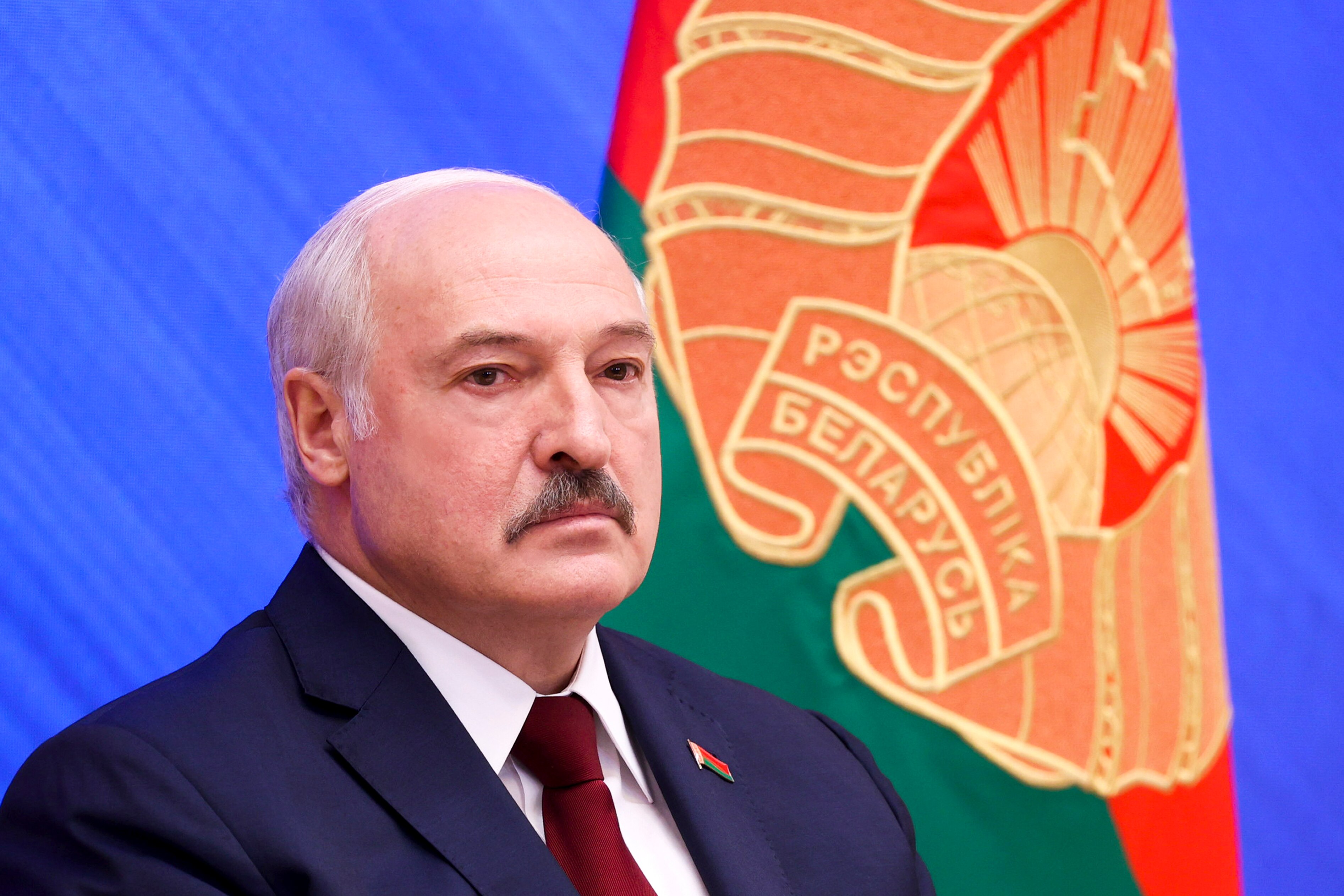

Belarusian President Alexander Lukashenko. Source: BelTA Pool
“The disputed election outcome sparked massive popular protests across Belarus calling for political change, which the Lukashenko regime crushed harshly, arresting thousands of demonstrators, locking up political prisoners and forcing many into exile abroad.â€
Sanctions on senior officials have so far not been effective in weakening the rule of Mr Lukashenko, who has been in power since 1994 and is a close ally of Moscow.
The crisis “will not be easy to resolve†as it “brings together two hitherto separate difficult issues: the EU’s fraught relationship with Belarus, and Europe’s migrant crisis on its bordersâ€, Professor Hill said.
Is Vladimir Putin to blame?Polish Prime Minister Mateusz Morawiecki this week accused Russian President Vladimir Putin of ‘masterminding’ the surge in migration in an attempt to destabilise the European Union, warning the “neo-imperialist politics of Russia are advancingâ€.
“This attack which Lukashenko is conducting has its mastermind in Moscow, the mastermind is President Putin,†Mr Morawiecki told his nation’s parliament on Tuesday.
Mr Morawiecki said he was “convinced†that what was occuring on Poland’s border was “part of a bigger operation, part of a more coordinated attack, an attack that has the character of a new kind of war, in which people are used as living shields, and in which another weapon, known from other wars has been used … disinformation.â€
While Mr Lukashenko is “an executor†of the “latest attackâ€, he “has an enabler, and this enabler is in Moscow, this enabler is President Putin, which shows a determination to carry out the scenario of rebuilding the Russian empire, the scenario that we, all Poles, have to forcefully oppose,†he said.
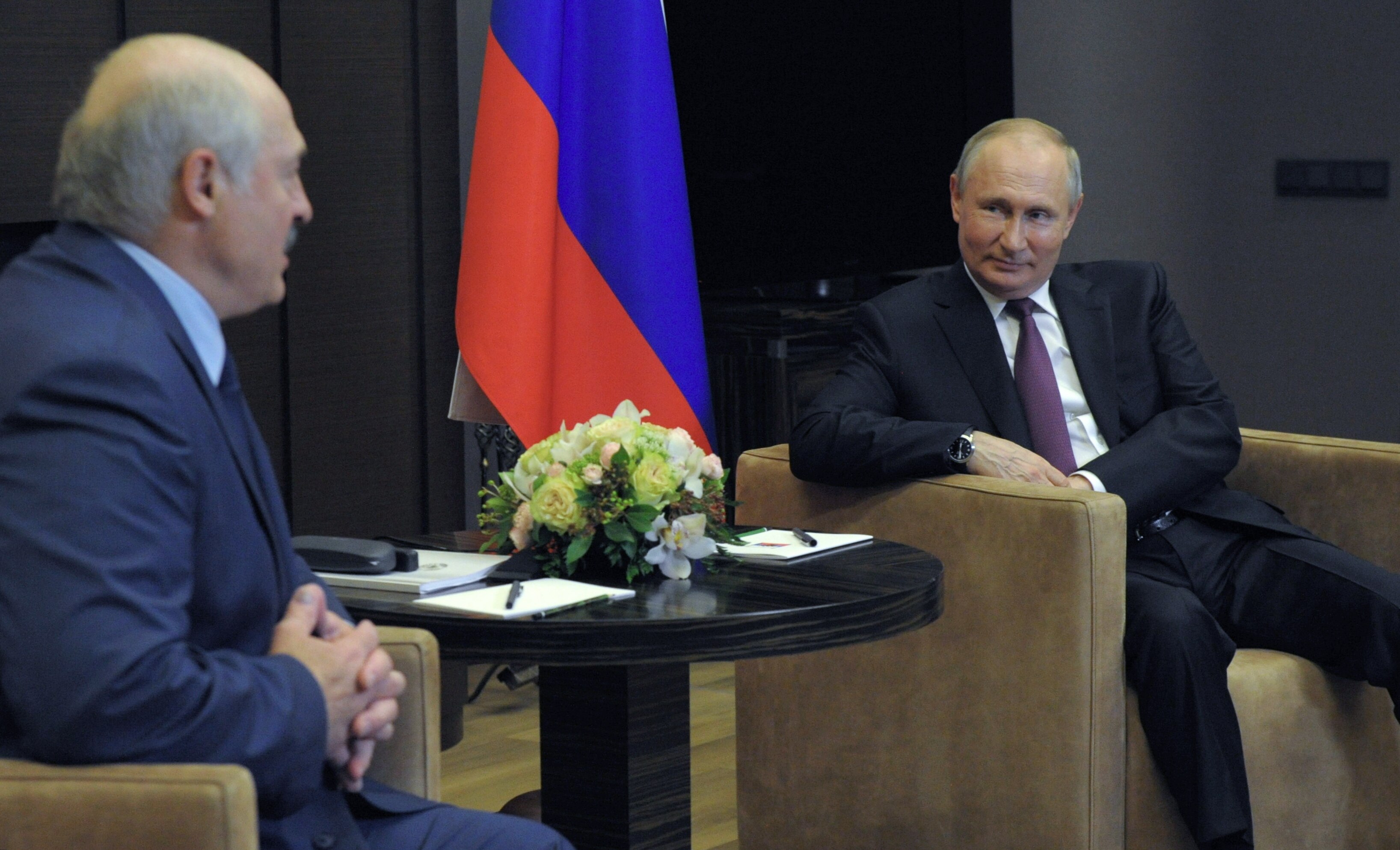

Russian President Vladimir Putin (right) speaks with Belarusian President Alexander Lukashenko. Source: Sputnik Pool
Germany has backed Poland, with the nation’s interior minister Horst Seehofer this week warning of the “hybrid threat†of “politically organised migration†that the “whole of the democratic world†must unite against.
Mr Seehofer accused Russia and Belarus of exploiting refugees and migrants in an attempt to destabilise the region.
“Poland or Germany can’t handle this alone. We must help the Polish government secure their external border. This would actually be the task of the European Commission. I’m now appealing to them to take action,†Mr Seehofer told German newspaper Bild.
Will Belarus face further sanctions?The European Union is close to imposing more sanctions on Belarus, targeting some 30 individuals and entities including the foreign minister and Belarusian airline Belavia, with approval as early as next week, three EU diplomats told Reuters.
On Wednesday, in a crucial step, the EU's 27 ambassadors are set to formally agree that the swelling numbers of migrants along Belarus' border with Poland amount to "hybrid warfare" and can serve as a legal basis on which to build sanctions.
The new round of sanctions is set to target Belarusian officials that the EU says have organised the migrant arrivals in revenge for sanctions on Minsk over human rights abuses.
More sanctions this month would take the total number of people under asset freezes and travel bans in Belarus to almost 200 people - including Mr Lukashenko and his sons - as well as more than a dozen institutions and companies.
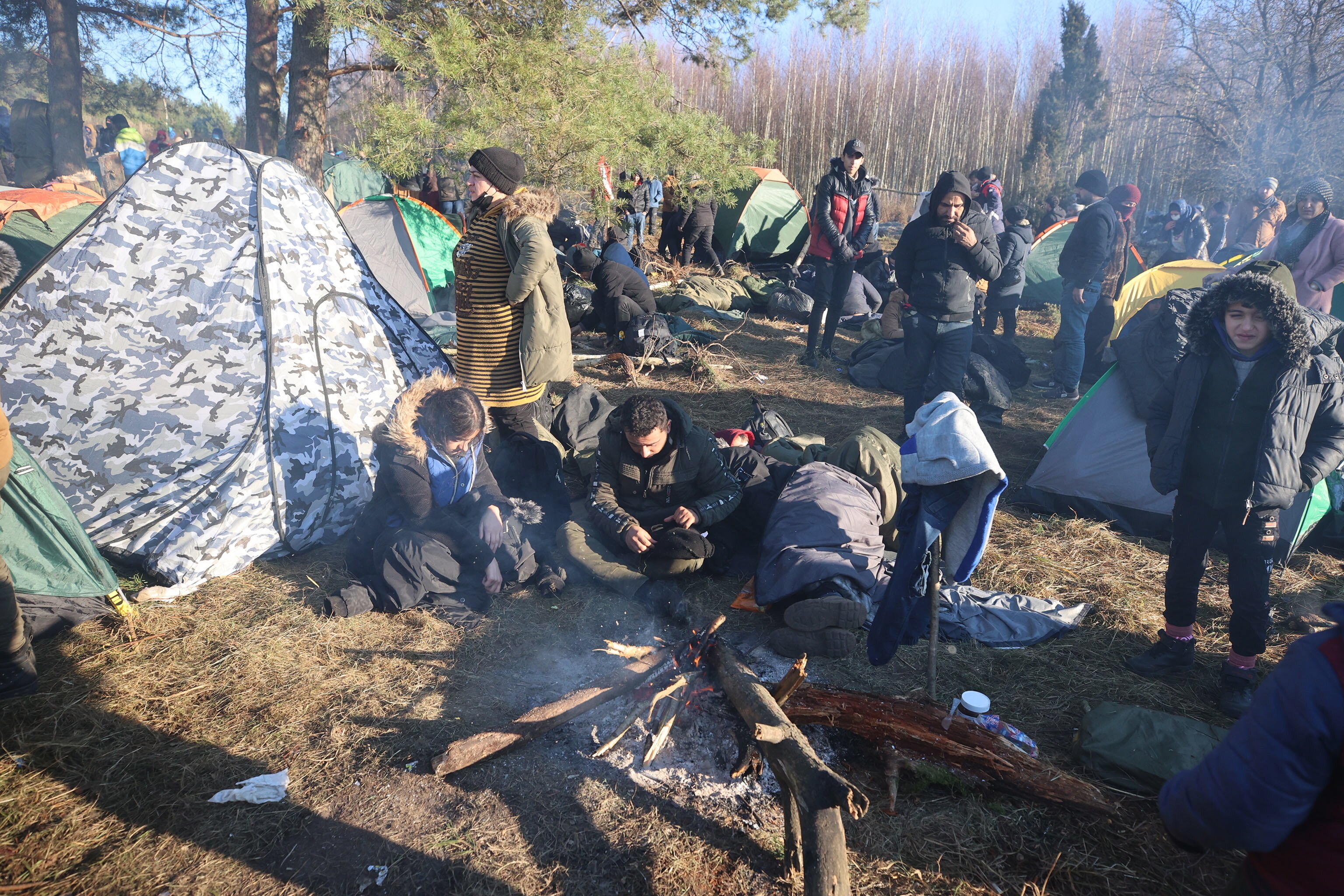

Migrants at their camp near the Belarus-Polish border in the Grodno region, Belarus. Source: BELTA
Foreign Minister Vladimir Makei, who defended Belarus' record at the United Nations General Assembly in September, is one senior official set to be sanctioned because his ministry is accused of handing out Belarusian visas to non-EU nationals, notably Syrians and Iraqis, diplomats said.
EU states are also considering broadening economic sanctions on Belarus imposed in July by targeting the local reinsurance sector and its main company state-owned BelarusRe, diplomats said.
The EU has already banned state-owned airline Belavia from EU airspace and EU airports after Minsk forced a Ryanair flight to land to arrest a Belarus opposition journalist.
EU officials including European Commission President Ursula von der Leyen are calling for even tighter measures, including on international airlines accused of flying migrants into Minsk, who are then transported to the Belarusian border.
With Reuters.

0 Response to "Theres a humanitarian crisis unfolding at the Belarus-Poland border Heres what you need to know"
Post a Comment